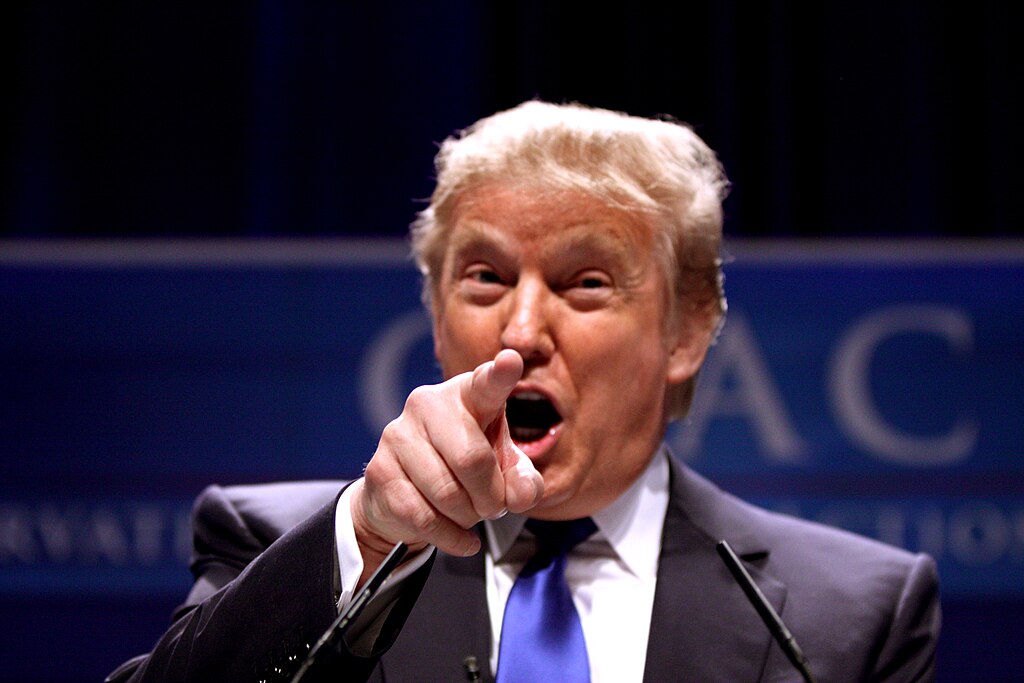In the aftermath of the highly anticipated 2024 presidential debate, Donald Trump emerged as the clear favorite among undecided voters, according to a post-debate poll conducted by Reuters. The survey, which polled undecided participants, revealed that 60% of those voters now favor Trump over his opponent, Vice President Kamala Harris, who garnered just 30% of their support. The remaining 10% of voters remained unsure, underscoring the crucial role this demographic could play in the upcoming election.
The debate, held earlier this week, was seen as a critical moment for both candidates, particularly as they sought to sway undecided voters in what has become an increasingly polarized political environment. Trump’s performance, marked by his trademark rhetoric and forceful attacks on Harris’s policies, appeared to resonate with voters who had yet to make up their minds, providing him with a significant boost heading into the final stretch of the campaign.
According to the Reuters poll, Trump’s ability to capture the majority of undecided voters is a clear indication that his message on key issues such as the economy, immigration, and national security continues to find favor among voters who may have previously been on the fence. His strong showing in this critical voter bloc could prove decisive in an election where both candidates are vying for every available vote.
Harris, who has been positioning herself as a candidate capable of uniting a divided country, struggled to gain the same level of traction with undecided voters. Despite her attempts to emphasize her experience and focus on social justice issues, her debate performance failed to resonate as strongly as Trump’s among this key group. This disparity in support could be a cause for concern for the Democratic campaign, which has been working to broaden its appeal beyond its traditional voter base.
The undecided voter demographic is often viewed as one of the most critical factors in determining the outcome of any election, and with just months remaining until Election Day, both candidates will be focusing their efforts on winning over this group. Trump’s success in capturing 60% of undecided voters in the immediate aftermath of the debate could indicate that his message is gaining traction, particularly as economic uncertainty and national security concerns dominate the political conversation.
While 10% of voters remain unsure, this segment may continue to fluctuate as the campaign progresses, leaving room for both candidates to further refine their strategies and appeal to those still weighing their options. However, Trump’s lead among undecided voters suggests that his campaign has found a winning formula, particularly with voters looking for strong leadership on issues they feel are not being adequately addressed by the current administration.
With the election drawing nearer, the battle for the undecided vote will be pivotal. As it stands, Trump’s ability to sway a majority of this key group has given his campaign a much-needed boost, while Harris and her team must now grapple with how to turn the tide in their favor before it’s too late.



 Missouri Judge Dismisses Lawsuit Challenging Starbucks’ Diversity and Inclusion Policies
Missouri Judge Dismisses Lawsuit Challenging Starbucks’ Diversity and Inclusion Policies  Trump Lifts 25% Tariff on Indian Goods in Strategic U.S.–India Trade and Energy Deal
Trump Lifts 25% Tariff on Indian Goods in Strategic U.S.–India Trade and Energy Deal  Trump Signs Executive Order Threatening 25% Tariffs on Countries Trading With Iran
Trump Signs Executive Order Threatening 25% Tariffs on Countries Trading With Iran  Trump Says “Very Good Talks” Underway on Russia-Ukraine War as Peace Efforts Continue
Trump Says “Very Good Talks” Underway on Russia-Ukraine War as Peace Efforts Continue  TrumpRx Website Launches to Offer Discounted Prescription Drugs for Cash-Paying Americans
TrumpRx Website Launches to Offer Discounted Prescription Drugs for Cash-Paying Americans  South Korea Assures U.S. on Trade Deal Commitments Amid Tariff Concerns
South Korea Assures U.S. on Trade Deal Commitments Amid Tariff Concerns  Trump Allows Commercial Fishing in Protected New England Waters
Trump Allows Commercial Fishing in Protected New England Waters  Netanyahu to Meet Trump in Washington as Iran Nuclear Talks Intensify
Netanyahu to Meet Trump in Washington as Iran Nuclear Talks Intensify  Pentagon Ends Military Education Programs With Harvard University
Pentagon Ends Military Education Programs With Harvard University  U.S. Announces Additional $6 Million in Humanitarian Aid to Cuba Amid Oil Sanctions and Fuel Shortages
U.S. Announces Additional $6 Million in Humanitarian Aid to Cuba Amid Oil Sanctions and Fuel Shortages  Trump Allegedly Sought Airport, Penn Station Renaming in Exchange for Hudson River Tunnel Funding
Trump Allegedly Sought Airport, Penn Station Renaming in Exchange for Hudson River Tunnel Funding  TrumpRx.gov Highlights GLP-1 Drug Discounts but Offers Limited Savings for Most Americans
TrumpRx.gov Highlights GLP-1 Drug Discounts but Offers Limited Savings for Most Americans  New York Legalizes Medical Aid in Dying for Terminally Ill Patients
New York Legalizes Medical Aid in Dying for Terminally Ill Patients  Jack Lang Resigns as Head of Arab World Institute Amid Epstein Controversy
Jack Lang Resigns as Head of Arab World Institute Amid Epstein Controversy  Trump Backs Nexstar–Tegna Merger Amid Shifting U.S. Media Landscape
Trump Backs Nexstar–Tegna Merger Amid Shifting U.S. Media Landscape  India–U.S. Interim Trade Pact Cuts Auto Tariffs but Leaves Tesla Out
India–U.S. Interim Trade Pact Cuts Auto Tariffs but Leaves Tesla Out  China Warns US Arms Sales to Taiwan Could Disrupt Trump’s Planned Visit
China Warns US Arms Sales to Taiwan Could Disrupt Trump’s Planned Visit 































